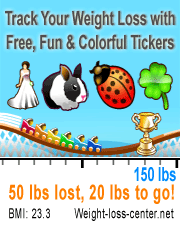|
|
B12 is a vitamin of many functions. It is a water-soluble vitamin, as most “B” vitamins are, which means that when the body receives excess amounts of this vitamin it simply flushes it out through the urine. Although there are some really excellent qualities to B12, such as playing a key role in the functioning of the nervous system and the brain as well as cellular formation, it has lately been used as a remedy for stress reduction and treating some symptoms of depression.
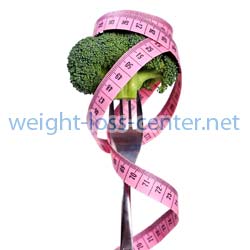 Including sources of Vitamin B12, such as broccoli, in your diet can help you to reduce your stress levels, increase your energy and lose more weight. You’re probably wondering how one typical vitamin can have such an impact on the body as to help reduce the symptoms of stress. There are plenty of functions that B12 can perform which have a significant impact on the body’s reaction to stress. For instance, the brain is one particular organ that is dependent upon vitamin B12 for everyday function—as is the nervous system. As this particular vitamin is an essential contributor to the functioning of the brain and nervous system, a deficiency in this vitamin can result in a plethora of issues, such as trouble remembering things, difficult concentrating, mood alteration, and even mental disorders. Each of these symptoms can pile even more stress onto one’s plate!
It’s safe to say that in most cases, stress begins in the brain. It can start off with one worrying about finances, health, work issues, etc. The emotions that this worry elicits can have a profound impact on one’s physical health, particularly when it comes to energy levels. We have all reached the point where our stress limits have become breached and we just can’t seem to pull together the energy to do the things we once used to enjoy. Vitamin B12 is reported to boost energy levels by aiding the body’s metabolism in breaking down fats to create energy. When this occurs, energy levels rise. Along with stress, a lack of energy is also a symptom of depression. These conditions can be improved by taking regular supplements of vitamin B12 or by altering one’s diet to include foods that are high in B12.
Because supplementing one’s diet with B12 results in a rise in energy levels through heightening one’s metabolism, that makes B12 a great tool for weight loss as well. Additionally, because vitamin B12 helps to lower stress levels this may also help to increase weight loss (for more information about how stress affects weight loss read the post “How Stress Affects Weight Loss“).
I’m sure you will be glad to know that there are tons of great foods that are chock full of B12, so it wouldn’t be difficult to add more of them into your diet. Meat, including fish and eggs, have the highest B12 content. Legumes, such as peas, lentils, dried beans, and soy beans, as well as whole wheat breads and cereals can also provide a good dose of B12. If you like your fruits and veggies, then you’ll also want to stock up on spinach, beets, asparagus, broccoli, Brussels sprouts, oranges, and bananas.
Although a significant increase in energy may not be immediate through regular dietary consumption, some people receive vitamin B12 injections to treat severe energy loss and depression. The injection contains a very concentrated amount of B12—about six months’ worth of B12 in one go. This provides the recipient with a huge boost in both metabolism and energy, which often results in rapid weight loss. It’s important to understand that these injections are not intended to cause weight loss, but rather it does occur as a side effect of the injection.
Stress, depression, and energy loss are all conditions for which vitamin B12 is a prime candidate for treatment. By treating these conditions with vitamin B12 you may also improve your weight loss efforts. Although the results of increased B12 consumption may not be instantaneous, there are definite long-term benefits to be reaped from this vitamin. Speak to your doctor about taking a B-complex vitamin or to see if you are a candidate for B12 injections.
Other Related Posts and Articles you May Find Interesting: “Stress Reducing Diet Foods”, “Weight Loss Foods that Improve Your Mood” and “Link Between Vitamin D and Weight Loss”.
As a kid, most of us cringed when mom plopped whole grain toast on the table next to the cereal bowl. Back then, it was difficult to understand why such heavy and strong-tasting bread was better for us than the fluffy white kind. Now that we’re older (and likely shoving whole wheat at our own kids), it’s time we did our homework.
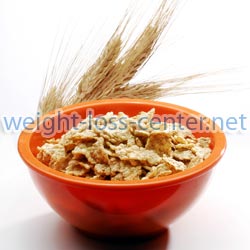 Adding whole grains to your diet has many benefits including improving digestion, fighting hunger, stabilizing blood sugar and lowering cholesterol. White bread is mostly made of sugar and starches, which happens to make this bread softer and easier on the palate. But alas, white bread really doesn’t offer a significant contribution to one’s health when compared to the bountiful vitamins and minerals that whole grain proffers. Whole grain provides tons of fiber and important nutrients such as folic acid and other B vitamins, iron, magnesium, and vitamin E. Whole grains are also chock full of antioxidants, which are important for gaining control against the body’s free radical cells.
The vitamins and minerals found in whole grains are helpful for lowering cholesterol and blood pressure, which in conjunction also lowers one’s risk of heart disease. Whole grain foods can also benefit diabetics by stabilizing blood sugar levels and enabling safe weight loss. Speaking of weight loss, you’re probably wondering how things like whole grain bread, brown rice, and oats can help you lose weight. The secret? Fiber!
Fiber is a substance that the body can’t really digest, yet it provides loads of health benefits. The most noticeable benefit is that fiber keeps bowel movements regular. Because fiber simply passes through the colon, offering neither nutrients nor calories, it enables toxins and other particles to bond to it, thus removing these “nasties” from the body quickly and efficiently. One of the added bonuses of this is that some of the dietary fats you eat are also pushed out of the body more quickly, giving the body much less time to absorb it.
Foods that are high in fiber also take longer to digest and keep you feeling fuller for longer. This is why many healthy diets intended for weight loss encourage people to eat high fiber foods, such as whole grains, vegetables and fruits at meals and for snacks instead of filling up on processed foods that are quickly digested and leave you feeling hungry in no time (for more information about the benefits of fiber, read the post “How Fiber Helps Weight Loss”).
If you already get your fill of common types of whole grains, such as whole wheat products, brown rice and oats, why not consider trying some of these other whole grains to add variety to your diet?
Quinoa – Quinoa is not technically a whole grain, however it provides the same health benefits of whole grain and is very easy to cook with. This seed-like grain can be prepared as a savory dish, similar to rice, or as a sweet dish served with honey and berries. Quinoa can also be a tasty addition to homemade granola and can be served with vegetables in a Quinoa salad. This is an easy grain to experiment with so have some fun.
Bulgar – Bulgar is a whole grain that is similar to cracked wheat, only bulgar is pre-cooked (which makes preparation a cinch). This grain is described as having a mild flavor with undertones of nut. It is available in many different grain sizes which makes it very versatile to cook with. Finely-ground bulgar can be made into a hot cereal while larger grains can be added to soups, bread, and salad. Bulgar can also be used instead of rice in many dishes. One of our families favorite is Spanish Bulgar (Spanish rice, but made with bulgar instead).
Millet – You could also try millet, which is a small seed produced by a grass-like crop. Millet can be quite bland on its own, as most grains can be, but it takes very well to seasoning. It makes an excellent replacement for rice and can be used in stuffing, cereal, and baked goods.
Kasha – Kasha is another worthy grain to try. Although in most parts of the world this porridge is made of up crushed grains, some areas derive kasha from buckwheat. Some forms of kasha are roasted, giving this food a distinct nutty flavor that is very pleasant! Although kasha can take a while to cook, it’s very versatile and can be made into a warm breakfast food or used as filler in pasta or other warm meals.
Wheat Berries – Last, but not least, we have wheat berries. A wheat berry is simply a whole grain kernel that has had the husk, or outermost portion, removed. Wheat berries are a fun grain because they have a nice chewy texture that doesn’t turn sloppy after cooking. These grains can be added to salad, seasoned with herbs, or mixed with fruit and chilled.
The possibilities of preparing whole grains are endless! If you are looking to give your diet a kick start in the right direction, be it for health or weight loss, then give some of these diverse whole grains a try!
Do you have a recipe you would like to share that includes one of the grains mentioned above? If so, please leave it in our comment section below for others to try.
Other Related Posts and Articles you May Find Interesting: “Foods that Improve Heart Health”, “Why You Need Carbohydrates”, “Designing Your Own Hunger Free Diet” and “Foods that Stabilize Blood Sugar”.
Many of us dieters constantly battle with a sweet tooth. Of course, when dieting it is a good idea to reduce the amount of sugars you consume, but this can be a real challenge if you crave the taste of something sweet.
If your sweet tooth is giving you more trouble than you think it should, and you have tried other ways to fight sugar cravings without much success, then you should look into trying some of these new zero calorie sweeteners. Using zero calorie sweeteners not only helps you to keep your calorie intake low, but some of them even add other benefits, such as more fiber to your diet.
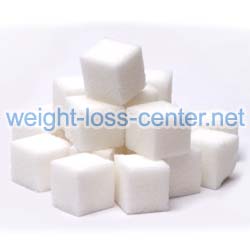 If your sweet tooth is threatening your dieting success then you should look into some of these new zero calorie sweeteners. Nutriose Soluble Fiber
If you’ve been dieting for a while, you might notice that certain cravings never seem to go away, especially sugar cravings. With Nutriose soluble fiber, you can not only have the sweetness you crave in your recipes, but you will also be able to add fiber to your diet, which will allow you to feel fuller longer during and after a meal. This is going to help you cut calories even further, which will help you lose weight easily. You will even feel more energetic as a result.
Nevella
Nevella is another name for the sucralose sweetener which has become so popular. This no calorie sweetener can actually be used in baking recipes, helping you to still enjoy your favorite sweet baked goods without the blood sugar spikes. Instead, you can enjoy your sweets without any guilt and without any calories. This will make your infrequent sweet treats have less impact on your diet goals.
Fruit-Sweetness
The Fruit-Sweetness zero calorie sweetener is designed to help dieters begin to drop calories from their diets without dropping any of the taste. Derived from the monk fruit, this concentrated sweetener is all natural, helping to find favor with those who are hesitate to use something like Splenda. Approved by the FDA, the Fruit-Sweetness product is helping dieters find a sweetener which is hundreds of times sweeter than cane sugar. So, you can eat less and still enjoy your sweet treats.
SweetFiber
Much like Nutriose soluble fiber, SweetFiber is a combination of a zero calorie sweetener and a fiber, helping to sweeten recipes, while also adding fiber to the diet. This sweetener will work best in beverages and in breads you bake. For those who find that other sweeteners are not compatible with their love of baking, SweetFiber works well.
SUSTA
According to the makers of SUSTA, this zero calorie sweetener includes inulin fiber, botanical extracts, natural flavors, fructose, minerals, vitamins, and probiotics. This powerhouse of ingredients helps to slow down the digestion of food, which can help a person who feels they have an out of control appetite. By helping to add sweet without affecting the blood sugar levels, the dieter can stay in control of any diet plan.
No matter what zero calorie sweetener you choose, you might want to try a few before you find the one that works for you. Each sweetener works a little differently. Plus, if you enjoy baking, you want to make sure the sweetener is designed to be heated up. Some zero calories sweeteners are only good for drinks and cold recipes.
Other Related Posts and Articles you May Find Interesting: “Artificial Sweeteners”, “Zerose – A New Zero-Calorie Sweetener”, “Stevia Sugar Substitute” and “Honey Sweetens a Weight Loss Diet”.
Well, it’s been just over 39 weeks now and I am almost at the end of my first pregnancy. This has been such an interesting ride for me – going from a focus on weight loss and exercise to focusing on how to nurture my pregnant body and baby. Honestly, I have found many similarities between the two. After all, healthy weight loss is all about eating a well-balanced diet and getting plenty of exercise and this is also what you should strive to do for a healthy pregnancy (although exercise may not be possible for all moms-to-be).
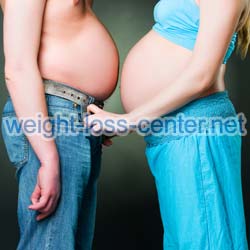 Most of these postnatal weight loss tips can benefit anyone wanting to lose weight (including husbands needing to lose pregnancy weight as well). With the end now in sight, I have started to make a post-pregnancy weight loss plan. I would love to get back to losing weight instead of gaining and I am feeling really motivated to start as soon as I can. After much research, I have come up with the top 10 postnatal weight loss tips that are out there. They all seem very sensible and I plan to follow them as best I can and keep you updated on my progress because I know there are many women out there also wondering how to lose weight after pregnancy.
PostNatal Weight Loss Tips
- Make small changes – Losing weight, as with anyone, is a process of making small changes in order to add up to a big weight loss. The more slowly you change your habits, the easier it will be to stick with the new lifestyle you’ve created.
- Breastfeed if you can – It’s been shown that breastfeeding alone can burn up to 500 calories per day. If it’s possible for you to breastfeed, this can help you to lose weight (refer to the article “Breastfeeding and Weight Loss” for more info).
- Small bouts of exercise add up – While you might not have a lot of spare time, you can fit in short bursts of exercise in your day. Even just three 15 minute bouts of exercise will add up to 45 minutes of activity – and more calories burned.
- Drink plenty of water – Staying hydrated will not only help you to keep your hunger at bay, but it will also help to keep you energized for keeping up with your new child. Try to drink at least eight glasses of water a day.
- Add fiber to your diet – When you are having troubles maintaining your hormones and your stress levels after having a child, your digestion can suffer. In order to avoid these troubles, make sure to add more fiber to your diet – fruits, vegetables, and whole grains. This will help your digestion stay on track, and it will also allow you to quell your cravings since fiber can make you feel full for long periods of time.
- Eat regularly – Taking in enough calories (especially when breastfeeding) is essential to weight loss. While you might be tempted to cut as many calories as possible, slowing down too much can cause your body to think it’s going into a starvation mode. You need to eat every few hours to keep your metabolism running and to make sure you are continuing to burn calories.
- Get rest – While it might not be possible to get a full night’s sleep, the more you can sleep, the easier it will be for you to lose weight. Make sure you are sharing baby responsibilities with someone else so that you can both get the sleep you need to be the best parents possible.
- Add protein to your meals – When you add more protein to your diet, you will be able to keep your blood sugar level constant, which not only keeps your metabolism high, but it will also prevent you from getting hungry (for more information, read the post “Weight Loss Benefits of Protein“).
- Have convenient foods available – Since you might not have a lot of time to make meals, it will help you to have convenient foods available – low fat frozen dinners, vegetables you can steam in the bag, pre-cut and pre-washed vegetables, etc.
- Add dairy to your diet – Finally, dairy has been shown to help people burn fat more easily when they are dieting. Try to add one to two servings of low fat dairy to your diet each day. (Some nursing babies may be lactose intolerant. If you or your partner are lactose intolerant you may want to avoid consuming dairy products while breastfeeding.)
Other Related Posts and Articles you May Find Interesting: “Weight Loss and Pregnancy Do Not Mix”, “Losing Weight After Pregnancy”, and “Post-Pregnancy Dieting”.
When you’re ready to lose weight and look better than you have in years, you need to look at more than just the calories on your plate. You need to begin thinking about the types of calories you have on your plate. It’s been shown time and time again that protein is one of the best nutrients to eat when you’re trying to lose weight, curb hunger and build healthy muscle.
 Whey protein can improve weight loss by increasing muscle and helping to curb hunger. There are many sources of protein you can choose to add to your diet. Eggs, fish, beans, nuts and dairy are some of the best protein-rich foods. There are also a number of protein supplements you can take, such as protein powders, that are a simple way to boost your intake each day. Of these, whey protein is considered one of the best protein supplements available.
Whey protein is a mixture of globular proteins that found in whey, which is a by-product from the production of cheese. In addition to it being a rich source of protein, whey protein may also have anti-inflammatory and anti-cancer properties and contain antioxidants that help reduce cell damage by free radicals.
When it comes to building muscle, whey protein is one of the most effective products available. Whey protein is rich in branch chain amino acids (BCAA’s) that are used as fuel for working muscles and stimulate protein synthesis for muscle repair.
How Whey Protein Helps Muscle Growth and Weight Loss
There are two primary ways in which whey protein can help with weight loss: helping to repair and build muscle and curbing hunger.
To begin with, your muscles need to have protein in order to repair any tears you might experience. For example, when you are working out, you are actually causing small tears in your muscles that then get repaired, making the muscle stronger and larger. In order to restore your muscles following exercise, your body needs a steady supply of protein. With whey protein, you will be able to get one of the most pure forms of protein that will build and tone muscle following exercise.
Using whey protein in your diet will also help with weight loss. Not only will it make you feel more energized, but it will help to curb hunger pangs. High protein foods, like whey protein, break down more slowly in the digestive system, which gives you a slow burning energy that will help you to stay moving throughout the day. Studies have shown too that when you add whey protein to your diet along with an exercise plan that includes muscle building or toning exercises, you will be able to lose more weight in a shorter period of time and keep it off. The extra muscle you have on your body will increase metabolism and help you to continue to burn calories, even when at rest.
Aside from weight loss and building muscle, whey protein has also been found to be a beneficial supplement for seniors. Since the body loses muscle as you become older, whey protein will help to slow this process down. By adding whey protein to your diet while getting regular exercise, most seniors find they can slow muscle loss and do more weight-bearing activities, which helps to maintain good bone density.
When you add whey protein to your diet, you will increase your muscle mass and allow for easier weight loss. But whey protein isn’t just for dieters and bodybuilders. You can also use it as you age to ensure you stay fit and active for as long as possible.
Other Related Posts and Articles you May Find Interesting: “Weight Loss Benefits of Protein”, “How Protein Curbs Hunger”, “Daily Protein Requirements”, and “Eating After Exercise”.
Though it is the responsibility of the individual to keep his or her body in healthy shape, there are many contributing factors to obesity that may require special consideration. After all, when someone is overweight it is very easy to point a finger at all the things they are doing “wrong”, such as overeating, making poor food choices and not getting enough exercise. However, these are just a few factors that can contribute to weight gain and obesity. Many people who are heavily overweight or obese are also struggling with not having enough positive support to make the changes they need to make, do not know how to make healthier choices or lack the self-esteem and motivation to lose weight.
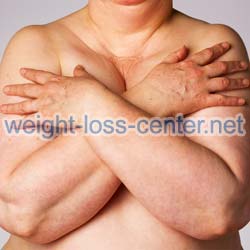 There is a big difference between accepting yourself and accepting obesity, the latter of which leads to continuing an unhealthy lifestyle. Being overweight and obese can be an emotional strain. Not only do you have pressure from society to look a certain way, but feeling good about yourself and your body can also be a battle. It is important to realize that just because you may be overweight does not mean you are a failure, a weak person or unattractive. However, being heavily overweight or obese is hurting you physically and losing weight should be something that you consider for this reason alone. Accepting yourself and loving your body is wonderful, not matter what your size, but accepting obesity will ultimately put your health and life at serious risk.
An article published in the New York Times (January 22, 2008 in the Health Section), entitled “In the Fatosphere, Big is In, or At Least Accepted”, the author examined blogs that are written by people who are obese and overweight. In it, the author noted that there were frequent messages that encouraged readers to accept themselves for their “fatness”, and that they needn’t believe all of the “propaganda” about the negative health aspects of being obese, as well as the fact that they should even avoid diets.
Although some of the bloggers did make valid points, such as the fact that it is important to love yourself no matter who you are, from a health standpoint, they may be taking things too far. There is a big difference between accepting yourself and accepting obesity, the latter of which leads to continuing an unhealthy lifestyle that will put yourself at a much higher risk of avoidable illnesses and health conditions, such as heart disease, cancers, and diabetes.
It is very important to realize that while some people who are overweight and obese seem to be content and not concerned with their state of health, they do indeed suffer from a reversible health condition and need love and support to make healthier changes in their lives. Nobody likes to be told that they are overweight and need to lose weight, so giving support can be challenging, but can be done effectively if approached delicately.
Here are some points that show the difference between accepting yourself and accepting obesity:
- Accepting your body – Indeed, it is important to love yourself inside and out. However, part of that love should be the willingness to seek healthier lifestyle choices so that it can run at its best, stave off disease, obtain better nutrition, and simply feel good.
- Stop dieting – Yes, dieting is not really a healthy option as it is only a short-term solution to being overweight. Instead, a healthy lifestyle including proper nutrition and regular exercise should be encouraged.
- “Big is Beautiful” – It is very important to understand that beauty is not just an external feature and that everyone – no matter how big – can be beautiful. However, true external beauty lies in a body that is treated in a healthy way and respected, not one that has been given up upon.
- You can be healthy at any size – This is indeed true, but when you are obese, you are at risk of a number of serious health conditions and your life expectancy shortens significantly.
If you are obese or overweight, like so many of us are, you should love yourself and consider yourself beautiful no matter what number the bathroom scale shows you. However, its important to begin to understand that a large part of self-love is taking care of your body so that it is healthy and you can live a long life. As soon as you start accepting yourself, not obesity, you will be ready to take steps to losing weight and living a healthier life.
Other Related Posts and Articles you May Find Interesting: “Is Fat Becoming the New Thin?”, “Enabling Obesity”, “Standard American Diet Attributed to Obesity and Poor Health”, and “Lifting Yourself from a Weight Loss Funk”.
Cutting calories is probably the first step that most of us take when we decide we want, or need, to lose weight. For most people this is the logical place to start when looking for ways to shed the pounds. We all know that getting some exercise could help too, but reducing calories seems to be the first choice for most, particularly when just starting a diet.
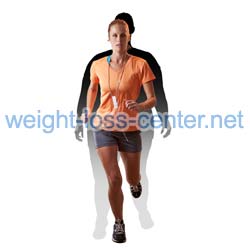 Studies have shown that a combination of cutting calories and exercising more is the best option for weight loss. Cutting calories certainly does have it’s downsides though. Moodiness, hunger pangs, and a lack of energy are just a few of the bothersome symptoms of a reduced-calorie diet that all of us have to get through, and many of us don’t. So is it possible that exercising more instead of cutting calories is better for weight loss, at least at the beginning? This is the big question you will need to answer when planning your own weight loss strategy.
The Argument for Cutting Calories
The process of weight loss can be seen as a math equation. When you take in fewer calories than you burn off, you will lose weight. Each pound of body fat adds up to 3500 calories. Thus, to lose a pound of fat, you need to remove 3500 calories from your diet. For this reason, many dieters try to reduce their daily calorie consumption by 500 calories in order to lose one pound a week. But is this successful?
Cutting your calories can help you not only learn how to manage your appetite, but also to eat better. Since you only have so many calories to eat each day, you need to make them count if you want to have energy and health. Many new dieters find that beginning with this simple change to their diets helps them discover what eating habits they need to work on in order to sustain long-term weight loss.
This being said, cutting calories and changing your eating habits can be a big task. Not only will you have to pay much closer attention to everything you put in your mouth (adding up calories can be tedious work – but well worth it), but a reduced-calorie diet will make you have less energy and struggle with mood fluctuations and hunger.
The Argument for Exercising More
While cutting calories can be one way to begin whittling away at those 3500 calories, it can also result in eating too few calories each day, nagging hunger, low energy levels and mood swings. For this reason, some successful dieters believe that exercise is the key to weight loss and to weight maintenance.
Like reducing the amount of calories you eat, exercise will help to reduce the number of calories in one’s day. By exercising and burning off 500 calories a day, a person can begin to lose weight at the rate of one pound per week. While they are exercising, the person will also be building muscle, which then increases their metabolism. The more muscle a person has, the easier it will be for them to sustain their weight loss.
Interval training is a form of exercise that helps to burn calories for hours. This type of exercising is one of the best ways to burn calories in the least amount of time. To learn more about this form of exercising, I recommend that you read the article “Interval Training and Weight Loss”.
As you can see, exercising more can be great for weight loss, but it does have its drawbacks too. For example, if you rely on exercise alone to burn off the calories you eat plus additional body fat then you better be prepared to get in at least four or five good workouts a week. This kind of time commitment is something that many people may find difficult to work into their busy lives, so it may be rather unrealistic for most.
Finding the Right Combination
In the end, perhaps the question isn’t whether cutting calories is better than exercising more when it comes to weight loss, but rather how to incorporate both into your diet program. By reducing calories in your diet and burning more calories during exercise, you should be able to lose weight in a healthy way that isn’t jeopardized by restrictive dieting or major time commitments for exercise. Studies have shown too that simply dieting or simply exercising just doesn’t add up to long term weight loss. To make sure you can lose the weight and maintain the loss over time, you need to create a lifestyle that includes both.
Other Related Posts and Articles you May Find Interesting: “Exercise Routine that Maximizes Weight Loss”, “Best Calorie-Burning Exercises”, “Exercise + Healthy Diet = Weight Loss”, and “Eating After Exercise”.
Dieting often makes me feel like there is a battle raging between me and my stomach. After all, my stomach is probably the most unappreciated organ in my body because I blame it for my nagging hunger pangs, embarrassing noises it makes in the elevator and of course for being much too large. Of course, I know that my stomach has little to do with my weight problems. In fact, it is an organ I should try to nurture and care for as it is not without its own risks for disease.
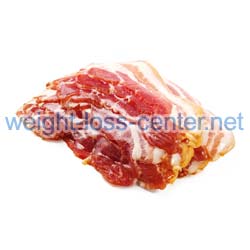 Preserved meats, such as bacon and pepperoni, contain chemicals that can be converted into cancer-causing compounds in the stomach. Even when dieting, your stomach has to work thanklessly away. Not only does it have the task of storing food that has been eaten, but it then has to break the food down into nutrients and particles that can be sent throughout the body. Without an efficiently operating stomach you will quickly waste away to nothing.
Your stomach comes in contact with everything that you eat and what you put in your stomach affect its health just as much as it affects the health of the rest of your body. The good news is that a healthy weight loss diet helps to fight some diseases of the stomach, such as gastric cancer.
Possible Causes of Gastric Cancer
Strangely enough, it is believed that the development of gastric cancer is not related to diet. Instead, research suggests that the majority of gastric cancers are caused by a bacteria called Helicobacter Pylori that causes inflammation in the stomach and may also cause ulcers. Your risk of developing gastric cancer is also related to your genetics.
This being said, the American Cancer Society has stated that eating certain foods, such as smoked foods, salted fish and meat, and pickled vegetables seem to increase the risk of stomach cancer. It is believed that these types of foods should be avoided because they contain nitrates and nitrites that Helicobacter Pylori can convert into cancer-causing compounds in the stomach.
Foods Containing Nitrates and Nitrites
During my pregnancy over the last eight months I have been very diligent to avoid all foods that contain nitrates and nitrites and I admit I am shocked at how many common foods these preservatives are in. The worst culprits for containing nitrates and nitrites appear to be preserved meats, such as hot dogs, bacon, pepperoni and many types of deli meats, but I have found them in all sorts of non-meat products as well. If you are concerned for the health of your stomach, or have a history of gastric cancer in your family, you should try to avoid foods that contain these compounds (often listed in the form of sodium nitrate or sodium nitrite in the nutritional info on food packaging). If, however, you are someone who can’t go without your smoked or preserved meats then it is recommended you drink a glass of orange juice or take in another source of vitamin C when you eat these types of foods. This is because Vitamin C has been found to inhibit the conversion of nitrates and nitrites to cancer-causing compounds in the stomach.
Preventing Cancer Before It Begins
While many people think that cancer is something that is primarily a result of genetics rather than poor diet, scientific studies are proving this idea wrong. Not only are people without a history of cancer fighting this disease, but they are also having a hard time battling it. What you need to realize is that the healthy habits you have today are going to help you lower the risk of cancer being a part of your life in the future. Here are some ways your weight loss diet can help to reduce your risk of cancers of all kinds, including gastric cancer:
- Eat more fruits and vegetables – Study after study has shown that people who eat up to nine servings of fruits and vegetables a day are more likely to avoid cancer.
- Exercise daily – When you exercise, you keep the cells in your body active and able to repair damage more quickly.
- Choose to eat less meat – Many studies have shown that people who eat fewer animal products are less likely to develop gastric and other digestive system cancers.
Why Weight Loss Helps Prevent Cancer
Not only will a healthier weight loss diet help fight cancer, but losing weight will too. When you lose weight, your body is going to be able to function better. This will help you to fend off cancer in a number of ways. If each cell of your body is functioning in an optimal way, they will be able to repair cellular damage much more efficiently. Sometimes this damage can turn into cancerous growths, so this is a very important process. In addition, when you lose weight, you will be able to live a more active lifestyle, which can help prevent some types of cancers.
The Macrobiotic Lifestyle for Cancer Patients
If you already have cancer, you will find many doctors suggest following a macrobiotic diet. This diet can also be used for weight loss and involves eating primarily fresh vegetables, whole grains and beans. You will not eat any processed foods and calorie counts are kept low. This diet is supportive to the body and it allows the patient’s digestive system to rest. While it’s true this diet can be difficult to stick to, it has been shown to help a person who is battling cancer.
People who follow the Mediterranean Diet have also been found to have lower incidence of gastric cancer. Similar to the macrobiotic diet, it is believed that the fresh foods and high amount of antioxidants associated with this diet may make all the difference.
Other Related Posts and Articles you May Find Interesting: “Healthy Weight Loss Diet May Prevent Cancer”, “Link Between Breast Cancer and Obesity”, “Anti-Cancer Diet”, and “Macrobiotic Diets”.
Every year, something new seems to be discovered about weight loss. The more we learn about the human body, the more we can do in order to create better health and a slimmer waistline.
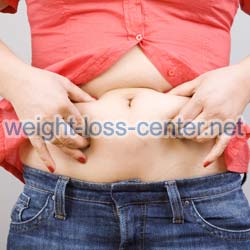 Two healthy weight loss trends for 2010 include adding more fiber and probiotics to your diet. Most weight loss trends seem to be focused on making dieting easier and faster. Although this may sound great, many of these trends, be it products or diets, don’t provide the results they promise. We have seen this time and time again with fad diets that come and go so fast it’s impossible to even keep track of them all. And then, of course, there are new diet pills and weight loss products that are being pumped out at such a mind-blowing rate its hard to sort through the fact from the fiction when it comes to their weight loss benefits.
When you put all the diet gimmicks aside and focus just on what new research in nutrition and health are telling us, there are definitely two weight loss trends for 2010 that stand out. Easy to implement and highly effective, these aspects of nutrition and dieting may be the missing links you have been searching for to help you achieve your weight loss goals.
Probiotics
A lot has been learned about the way the body processes food. Each time we eat, a number of different functions take place in our blood stream and in our intestines. When the stomach is not able to break down foods properly, they are sent to the intestines. And if the intestines are not able to break down the food, the body can become malnourished and bloated. In order to increase the efficiency of your digestive system, probiotics are a great addition to your weight loss plans. When you take a probiotics supplement, you will be adding healthy bacteria to your gut. In taking these supplements, your body will be able to break down foods more easily, maintain your regularity, and enjoy a stronger immune system.
In terms of weight loss, since your body will not be holding onto excess foods, you will be able to reduce bloating that can come along with constipation and gas from poor eating habits. As well, probiotics add replenish healthy bacteria in your digestive system, which improves digestion. While taking probiotics doesn’t mean you should eat whatever you want, they will help you to break down the foods you eat in order to lose weight more easily (for more information about how probiotics can help weight loss, see the article “Weight Loss Using Probiotics“).
Fiber
While you might have been adding more fiber to your diet anyway, many people don’t realize how effective it is in terms of weight loss. By adding fiber to your diet, you will begin to slow down your digestion in a good way. This will allow your body to feel fuller, which will cause you to eat fewer calories. In addition, you will find that your blood sugar levels aren’t going up and down as dramatically, which will help you to have more control over your hunger pangs (for more information about the weight loss benefits of fiber, read the article “How Fiber Helps Weight Loss“).
You can add fiber to your diet in a variety of ways: adding more raw vegetables and fruits to your day, adding fiber supplements, and eating more skins on produce. In addition, you will want to make sure you are drinking plenty of water in order to keep the fiber moving in your digestive system.
When you are looking at the current weight loss trends for 2010, adding more probiotics and fiber to your diet are the two sensible ones that stand out as being healthy and reasonable. By choosing probiotics in supplements or yogurt, you will help yourself begin to have better digestion and the added fiber will help you to eat less without feeling deprived. Together, these two 2010 weight loss trends can help you reach your goal weight in a healthy way.
Other Related Posts and Articles you May Find Interesting: “Green Dieting: Eco-Friendly Ways to Eat and Exercise”, “Is Fat Becoming the New Thin”, and “Low-Fat vs Low-Carb – Which Diet is More Effective?”.
So many times in my life this has happened – I step on the bathroom scale after a week of dieting and have my motivation crushed when I look at the number and realize that I have gained weight despite my efforts. Sometimes I know I deserve this setback because I didn’t follow my diet as I should have, but other times there seems to be no explanation for this devastating blow.
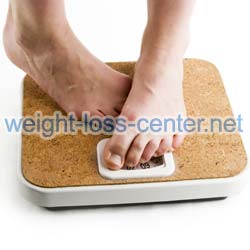 These top 10 bad habits that can cause weight gain can leave a dieter feeling frustrated and confused when it comes to losing weight. Truth be told, though, there are so many little things we do during our diets that can really sabotage our efforts to lose weight despite all of our good intentions. You probably don’t feel like you’re eating poorly or more than you should, so why is the scale saying that you are gaining weight? To help shed some light on this common dieting problem I have come up with the top 10 bad habits that cause weight gain that may be preventing you from reaching your goal.
- Not eating enough calories – When you don’t eat enough calories, this causes your body to feel that it’s starving. As a result, it slows down your metabolism and will hang onto those calories instead of burning them for fuel.
- Drinking diet soda – Research has shown that drinking diet soda can cause people to eat more than they should. This is due to the artificial sweeteners used in diet drinks that act like sugar in the body, causing insulin levels to spike, which can lead to more hunger.
- Avoiding whole fruits – While drinking juice can give you some vitamins and minerals, juice also has more calories and less fiber than you would get by eating the whole piece of fruit.
- Not exercising – Your body was designed to move, so when you don’t exercise, it can begin to slow down and burn fewer calories. Over time, this adds up to weight gain.
- Muscle loss – When dieting your body is forced to use energy it has stored either in fat or muscle. Of course, we want our bodies to consume fat not muscle, but if you don’t work at toning your muscles you could start to lose them. This is why is particularly important to do exercises that helps tone and build muscle so that you keep the muscle you have instead of losing it when dieting. Each pound of muscle you have on your body burns calories, even when you’re not working out.
- Not planning your meals – If you don’t have a plan to eat healthy, it’s going to be much easier to gain weight. Try planning out your meals for an entire week to see how this might help you in your weight loss efforts.
- Eating fast food meals – Eating fast food can cause weight gain, we all know this. Even fast foods that are called “healthier options” are often riddled with calories. When trying to lose weight it is best to avoid fast foods all together.
- Eating too fast – When you’re eating, you should be seated, slowly chewing each bite of food. Since the body needs about 20 minutes to send the signal to the brain that it’s full, if you eat too fast the brain does not have time to catch up with your stomach and it becomes very easy to overeat (for more information, read the post “Eating Slower Improves Weight Loss“).
- Extreme low-fat dieting – While it might seem like a good idea to cut all of the fat out of your diet, when you do this your brain will cry out for sustenance, which can cause extreme hunger pangs.
- Drinking your calories – Even some pretty innocent looking beverages can contain 200 or more calories. Instead of drinking your calories in beverages such as sport drinks, specialty coffees, juices and sodas choose water or unsweetened tea instead.
Losing weight is often just a matter of changing a few things in your diet and in your lifestyle. And just as simple as it is to lose weight by making small changes in your diet and lifestyle, it is just as easy to gain weight if some of these common bad habits are not addressed. By making sure you avoid these 10 bad habits that cause weight gain you will likely start to see your weight drop on a more consistent basis.
Other Related Posts and Articles you May Find Interesting: “Gaining Weight When Dieting”, “Health Conditions that Cause Weight Gain”, and “Sports Drinks Hinder Weight Loss”.
|
|














